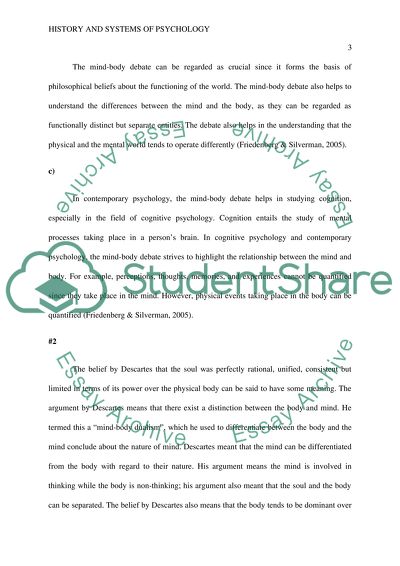Cite this document
(“History and Systems of Psychology Assignment Example | Topics and Well Written Essays - 2500 words”, n.d.)
Retrieved from https://studentshare.org/psychology/1402097-history-and-systems-of-psychology
Retrieved from https://studentshare.org/psychology/1402097-history-and-systems-of-psychology
(History and Systems of Psychology Assignment Example | Topics and Well Written Essays - 2500 Words)
https://studentshare.org/psychology/1402097-history-and-systems-of-psychology.
https://studentshare.org/psychology/1402097-history-and-systems-of-psychology.
“History and Systems of Psychology Assignment Example | Topics and Well Written Essays - 2500 Words”, n.d. https://studentshare.org/psychology/1402097-history-and-systems-of-psychology.


